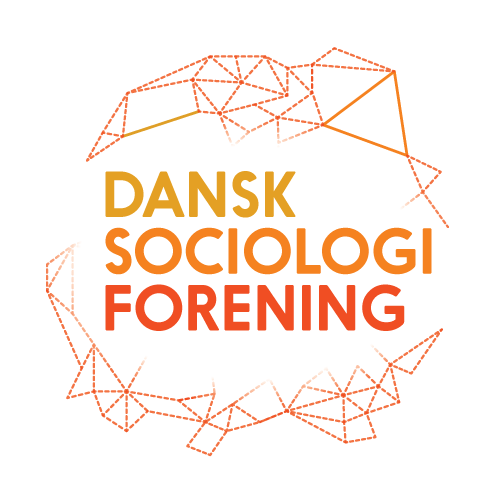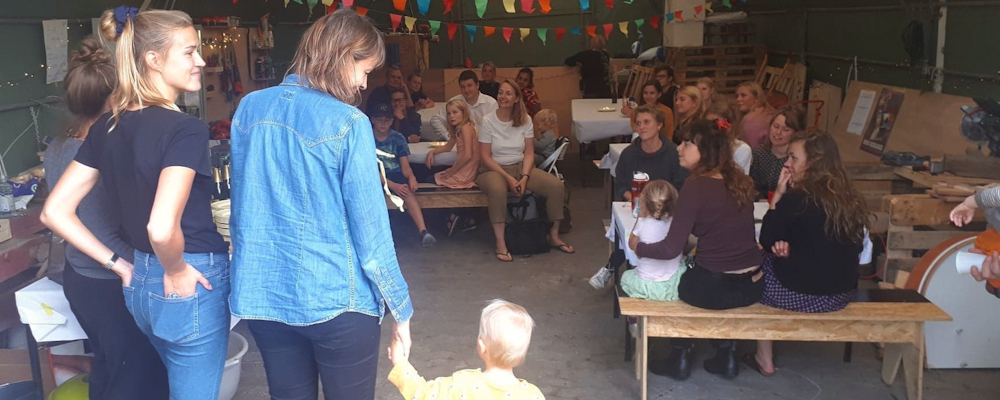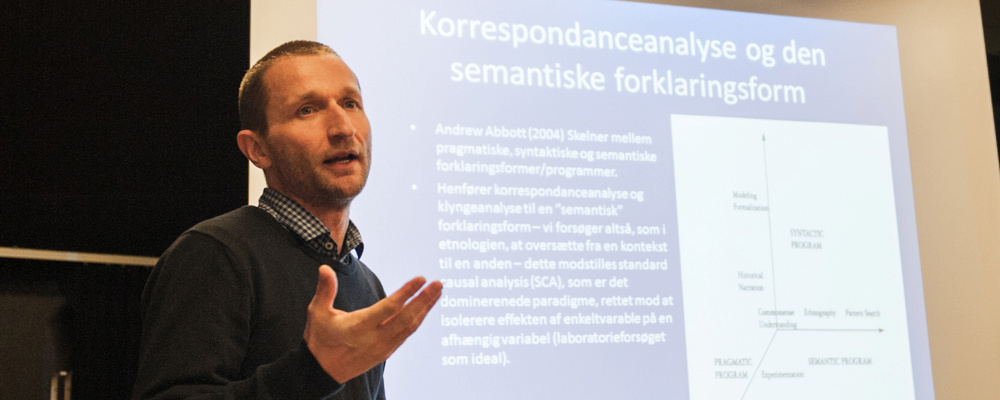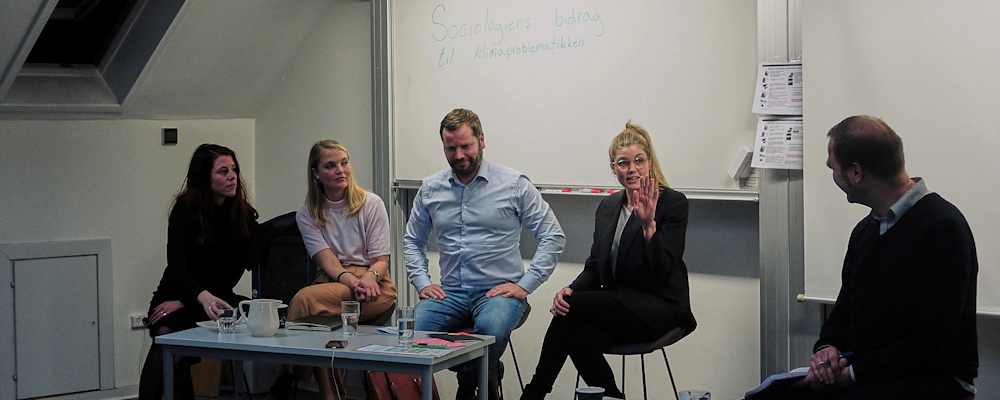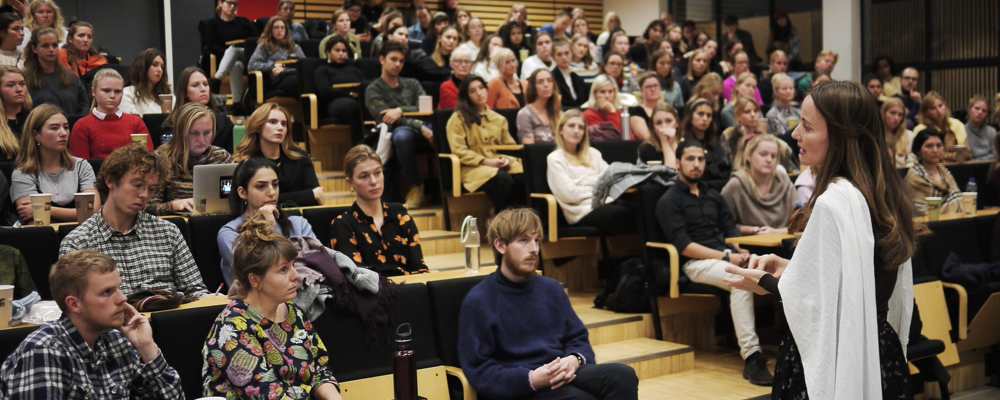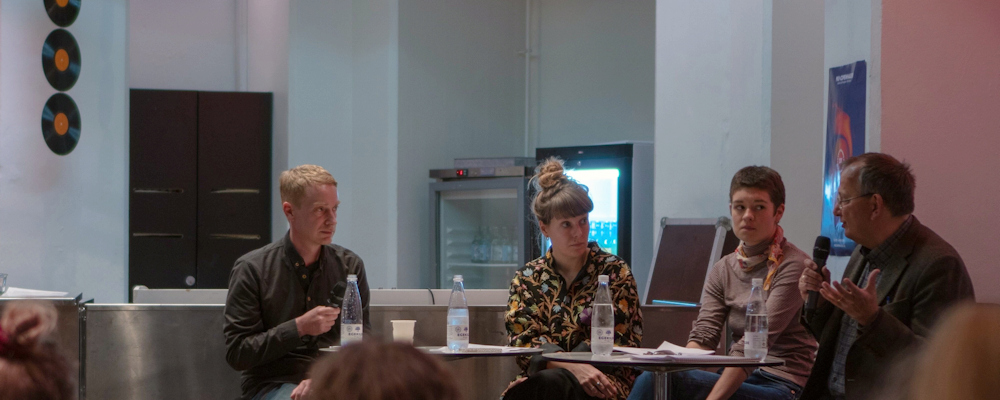Vi glæder os til at se jer!
Invitation til Metodeklubben
Metodeklubben fungerer som et uformelt forum for diskussion af kvantitativt orienterede sociologiske undersøgelser. Formålet med Metodeklubben er at give mulighed for feedback på igangværende projekter samt at få inspiration og indsigt i anvendelsen af kvantitative metoder. Metodeklubben er et forum for diskussion af kvantitativ forskning i bred forstand, dvs. vi tager både spørgsmål op omkring design, metode, analyse, statistik og formidling. Klubben mødes en gang om måneden, hvor ét medlem præsenterer sin forskning og de andre medlemmer bidrager med konstruktiv kritik og feedback.
De næste to oplæg i Metodeklubben er:
26/10 kl. 16-17:30: Mette Foss Andersen: Kriminalitet og uddannelse
30/11 kl. 16-17:30: Erik Petrovski: The Effect of Volunteer Work on Employability
Metodeklubben har pt base hos Rockwool Fondens Forskningsenhed (Sølvgade 10, 2. tv.), og møderne afholdes i udgangspunktet i tidsrummet 16-17.30. Tilmelding til de enkelte arrangementer sker gennem Facebook (https://www.facebook.com/groups/metodeklubben/) og alle fra kandidatstuderende til etablerede forskere er velkomne i klubben.
Vi håber at se mange nye (og gamle) ansigter til Metodeklubbens møder.
Anne Sofie Anker & Merete Monrad
Kronik i Altinget
Det danske arbejdsmarked er i forandring. Nye innovative måder at organisere arbejdet på via eksempelvis digitale platforme vokser frem med stor hastighed og velkendte former for usikre ansættelser som freelance- og projektarbejde bliver mere og mere udbredte. Kan den danske model klare presset, eller er der behov for mere lovgivning? Vi giver her et bud på tre scenarier for fremtidens arbejdsmarkedsregulering. Formanden for Dansk Sociologiforening og lektor ved FAOS på Københavns Universitet Anna Ilsøe har sammen med Trine Pernille Larsen, der ligeledes er lektor ved FAOS på Københavns Universitet, skrevet fredagens kronik på Altinget.dk
Douglas McAdam – Dybt splittet: Sociale bevægelser og race-politik i efterkrigstiden USA
Oplæg og debat med Douglas McAdam, Ray Lyman Wilbur Professor of Sociology på Stanford University d. 20. september 2016.
USA har ikke været mere splittet politisk, økonomisk og racemæssigt i de seneste 100 år, end det er i dag. Hvordan har De Forenede Stater udviklet sig fra samarbejde på tværs af partierne og en relativ ligestilling i efterkrigstiden til den ekstreme ulighed og fjendtlige partipolitik, som er tydelig i den aktuelle amerikanske præsidentvalgkamp? Mens der aktuelt fokuseres på konflikten i og imellem de to store partier, bør roden til den nuværende splittelse søges i den løbende interaktion mellem sociale bevægelser og partier. Borgerretsbevægelsen i 1960’erne, og det hvide tilbageslag den udløste, førte til en genopståen af opsplittende kræfter i sociale bevægelser i amerikansk politik. Donald Trumps nominering som præsidentkandidat – på trods af massiv modstand fra den etablerede elite i det republikanske parti – er blot det seneste udtryk for denne proces. Racespørgsmål og en genopstående racisme er centrale elementer i den aktuelle konflikt. Paralleller til voksende anti-immigrant holdninger og højrefløjs ekstremisme i Europa er både tydelige og bekymrende.
Douglas McAdam er toneangivende indenfor sociale bevægelser og politisk sociologi. Han er (med)forfatter til klassikere indenfor forskningen i sociale bevægelser som Freedom Summer (1988), Political Process and the Development of Black Insurgency (1999), The Dynamics of Contention (2001, med Sidney Tarrow og Charles Tilly) og Putting Social Movements in Their Place: Explaining Opposition to Energy Projects in the United States, 2000-2005 (2012, med Hilary Boudet). Han har også bidraget til mere generel sociologisk teoriudvikling bl.a. i bogen A Theory of Fields (2012, med Neil Fligstein). Han har rejst og givet forelæsninger i mange internationale sammenhænge, men endnu aldrig besøgt Danmark. Det vil således være første gang han taler til det sociologiske publikum i dansk sammenhæng.
Foredragsrække på CBS
Yderligere information ses her
Foredrag med Douglas McAdam
Douglas McAdam – Dybt splittet:
Sociale bevægelser og race-politik i efterkrigstiden USA
Dansk Sociologiforening inviterer i samarbejde med Sociologisk Institut og Centre for Anthropological, Political and Social Theory (CAPS) til oplæg og debat med Douglas McAdam, Ray Lyman Wilbur Professor of Sociology på Stanford University.
Tirsdag d. 20. september kl. 16.00 til 18.00 (reception kl. 18-19 i foyeren) i Christian Hansen Auditoriet, bygning 34, Center for Sundhed og Samfund, Øster Farimagsgade 5, København K.
USA har ikke været mere splittet politisk, økonomisk og racemæssigt i de seneste 100 år, end det er i dag. Hvordan har De Forenede Stater udviklet sig fra samarbejde på tværs af partierne og en relativ ligestilling i efterkrigstiden til den ekstreme ulighed og fjendtlige partipolitik, som er tydelig i den aktuelle amerikanske præsidentvalgkamp? Mens der aktuelt fokuseres på konflikten i og imellem de to store partier, bør roden til den nuværende splittelse søges i den løbende interaktion mellem sociale bevægelser og partier. Borgerretsbevægelsen i 1960’erne, og det hvide tilbageslag den udløste, førte til en genopståen af opsplittende kræfter i sociale bevægelser i amerikansk politik. Donald Trumps nominering som præsidentkandidat – på trods af massiv modstand fra den etablerede elite i det republikanske parti – er blot det seneste udtryk for denne proces. Racespørgsmål og en genopstående racisme er centrale elementer i den aktuelle konflikt. Paralleller til voksende anti-immigrant holdninger og højrefløjs ekstremisme i Europa er både tydelige og bekymrende.
Douglas McAdam er toneangivende indenfor sociale bevægelser og politisk sociologi. Han er (med)forfatter til klassikere indenfor forskningen i sociale bevægelser som Freedom Summer (1988), Political Process and the Development of Black Insurgency (1999), The Dynamics of Contention (2001, med Sidney Tarrow og Charles Tilly) og Putting Social Movements in Their Place: Explaining Opposition to Energy Projects in the United States, 2000-2005 (2012, med Hilary Boudet). Han har også bidraget til mere generel sociologisk teoriudvikling bl.a. i bogen A Theory of Fields (2012, med Neil Fligstein). Han har rejst og givet forelæsninger i mange internationale sammenhænge, men endnu aldrig besøgt Danmark. Det vil således være første gang han taler til det sociologiske publikum i dansk sammenhæng.
Arrangementet foregår på engelsk, og er gratis for alle interesserede.
Begivenhed på Facebook kan findes gennem følgende link: https://www.facebook.com/events/1648788708768783/
Vel mødt til et stort og spændende efterårsarrangement.
Douglas McAdam – Dybt splittet: Sociale bevægelser og race-politik i efterkrigstiden USA
Dansk Sociologiforening inviterer i samarbejde med Sociologisk Institut og Centre for Anthropological, Political and Social Theory (CAPS) til oplæg og debat med Douglas McAdam, Ray Lyman Wilbur Professor of Sociology på Stanford University.
Tirsdag d. 20. september kl. 16.00 til 18.00 (reception kl. 18-19 i foyeren) i Christian Hansen Auditoriet, bygning 34, Center for Sundhed og Samfund, Øster Farimagsgade 5, København K.
USA har ikke været mere splittet politisk, økonomisk og racemæssigt i de seneste 100 år, end det er i dag. Hvordan har De Forenede Stater udviklet sig fra samarbejde på tværs af partierne og en relativ ligestilling i efterkrigstiden til den ekstreme ulighed og fjendtlige partipolitik, som er tydelig i den aktuelle amerikanske præsidentvalgkamp? Mens der aktuelt fokuseres på konflikten i og imellem de to store partier, bør roden til den nuværende splittelse søges i den løbende interaktion mellem sociale bevægelser og partier. Borgerretsbevægelsen i 1960’erne, og det hvide tilbageslag den udløste, førte til en genopståen af opsplittende kræfter i sociale bevægelser i amerikansk politik. Donald Trumps nominering som præsidentkandidat – på trods af massiv modstand fra den etablerede elite i det republikanske parti – er blot det seneste udtryk for denne proces. Racespørgsmål og en genopstående racisme er centrale elementer i den aktuelle konflikt. Paralleller til voksende anti-immigrant holdninger og højrefløjs ekstremisme i Europa er både tydelige og bekymrende.
Douglas McAdam er toneangivende indenfor sociale bevægelser og politisk sociologi. Han er (med)forfatter til klassikere indenfor forskningen i sociale bevægelser som Freedom Summer (1988), Political Process and the Development of Black Insurgency (1999), The Dynamics of Contention (2001, med Sidney Tarrow og Charles Tilly) og Putting Social Movements in Their Place: Explaining Opposition to Energy Projects in the United States, 2000-2005 (2012, med Hilary Boudet). Han har også bidraget til mere generel sociologisk teoriudvikling bl.a. i bogen A Theory of Fields (2012, med Neil Fligstein). Han har rejst og givet forelæsninger i mange internationale sammenhænge, men endnu aldrig besøgt Danmark. Det vil således være første gang han taler til det sociologiske publikum i dansk sammenhæng.
Arrangementet foregår på engelsk, og er gratis for alle interesserede.
Begivenhed på Facebook kan findes gennem følgende link: https://www.facebook.com/events/1648788708768783/
Vel mødt til et stort og spændende efterårsarrangement.
Sociolologisk sommerlæsning om ny politisk aktivisme
Med støtte fra Foreningen Grus er det seneste særnummer af Dansk Sociologi ekstraordinært gjort tilgængeligt på Sociologforeningens hjemmeside.
Politisk vækkelse, mobilisering og innovation kommer langt fra udelukkende fra Christiansborg. I disse år skubbes der til grænserne for, hvem der kan og vil deltage, under hvilke omstændigheder og hvordan. Nye organisationsformer, sociale iværksættere og nye sociale bevægelser, der i disse år ser dagens lys, udfordrer det repræsentative demokrati, som vi kender det.
Hvor kommer forandringen fra, og hvilke aktører står bag den? I dette særnummer af Dansk Sociologi er der inviteret til diskussion af disse store spørgsmål. Temanummeret består af en rammesættende introduktion af Silas Harrebye og Bjørn Thomassen, hvor temaets faglige relevans og aktualitet slås an; tre empirisk forankrede artikler som bringer forskellige fagdisciplinære perspektiver på politisk aktivisme i spil; og til sidst en aktuel kommentar og en anmeldelse – begge inden for tema. Ud over temanummeret bringes der et review essay med en tilhørende replik.
Redaktionen af Dansk Sociologi retter en særlig tak til Foreningen Grus for økonomisk støtte til udgivelse af særnummeret. Nummeret kan tilgås via dette link: http://ej.lib.cbs.dk/index.php/dansksociologi/issue/view/605
